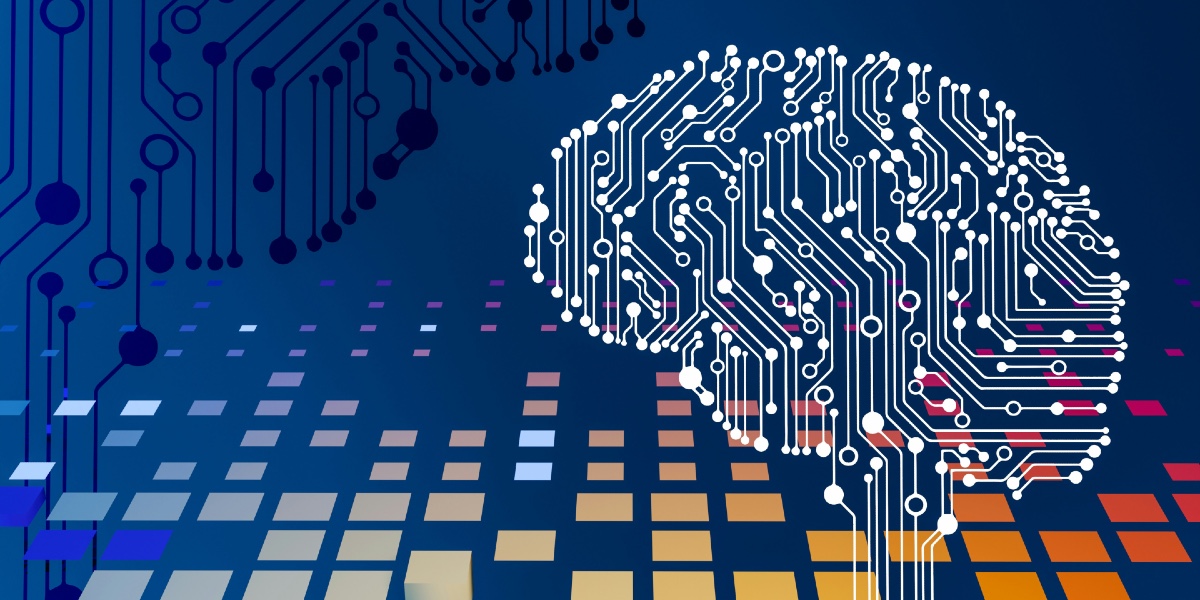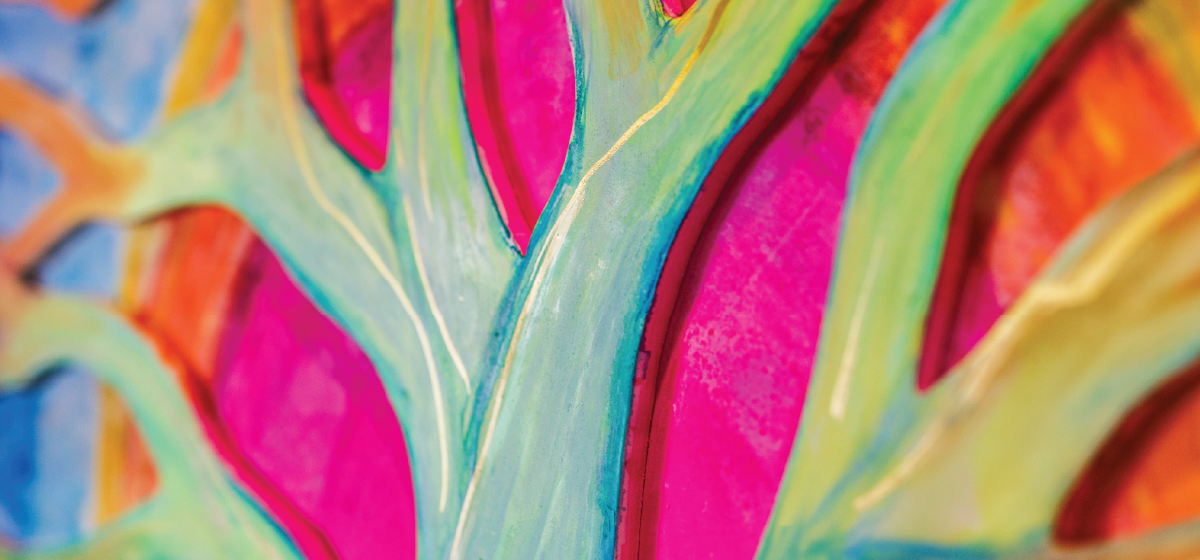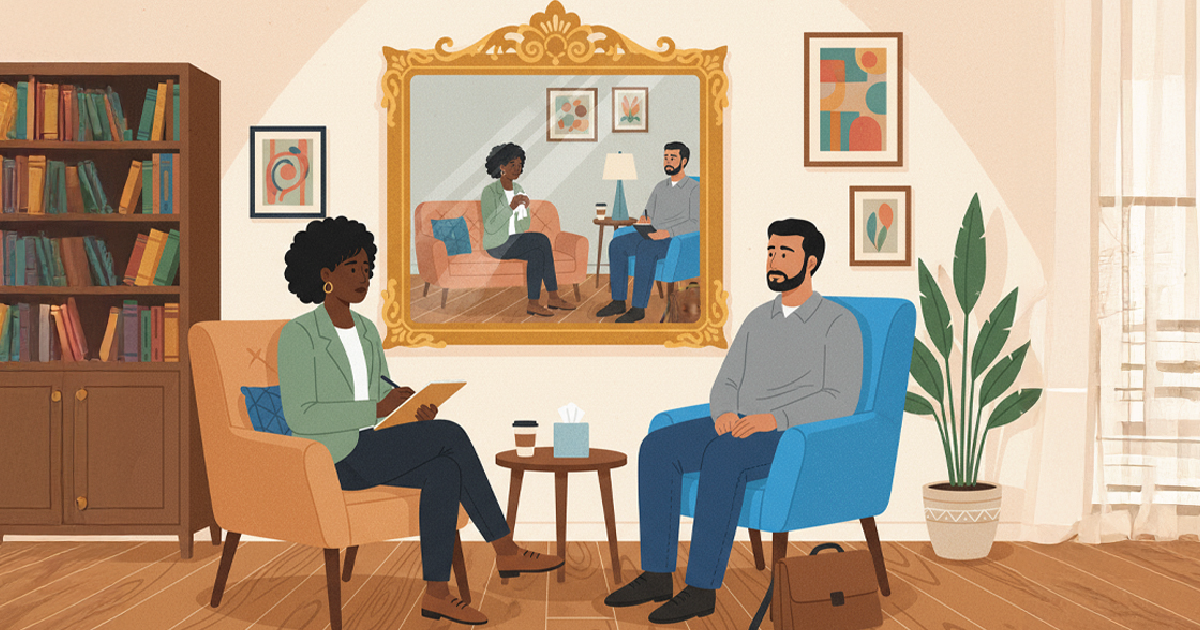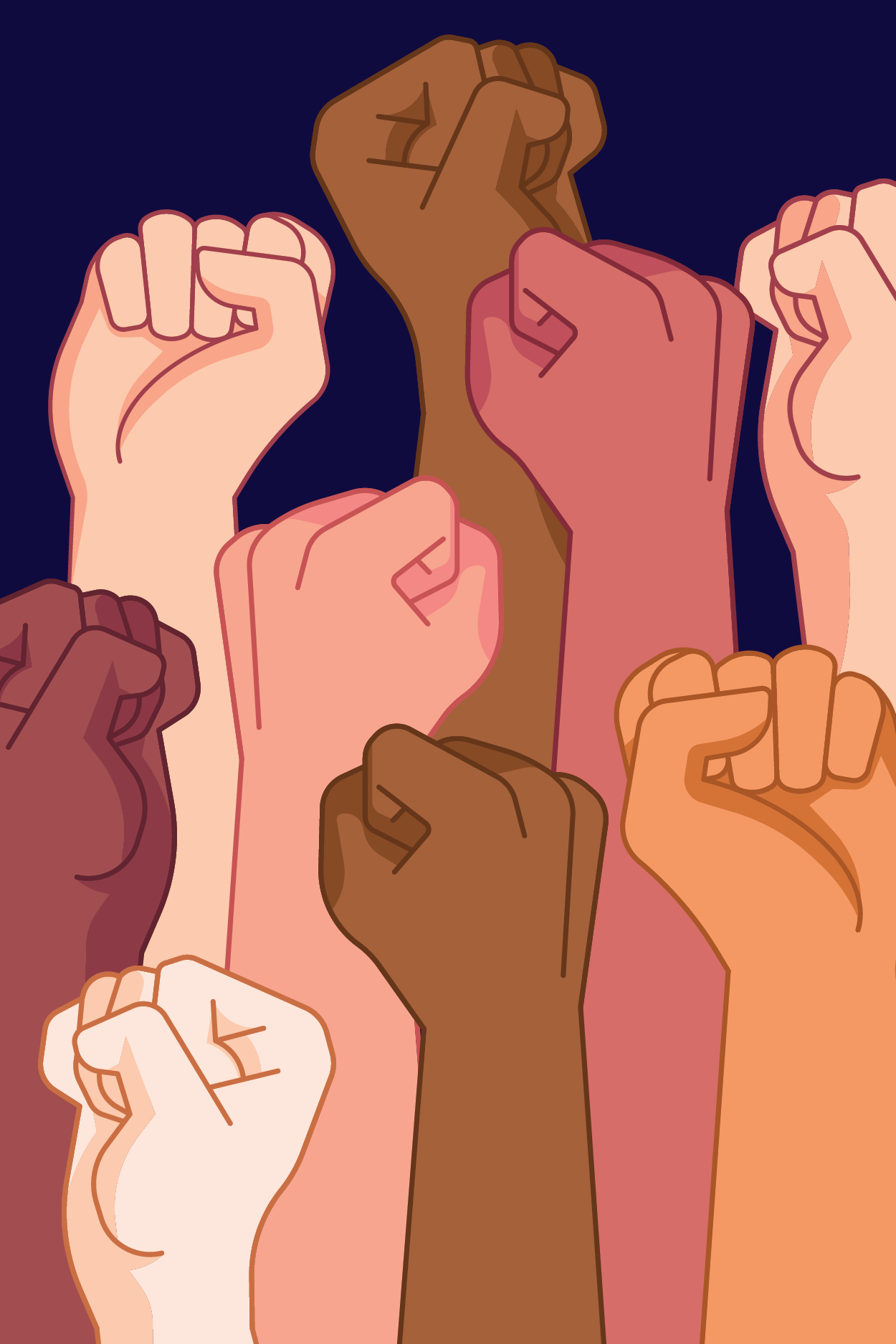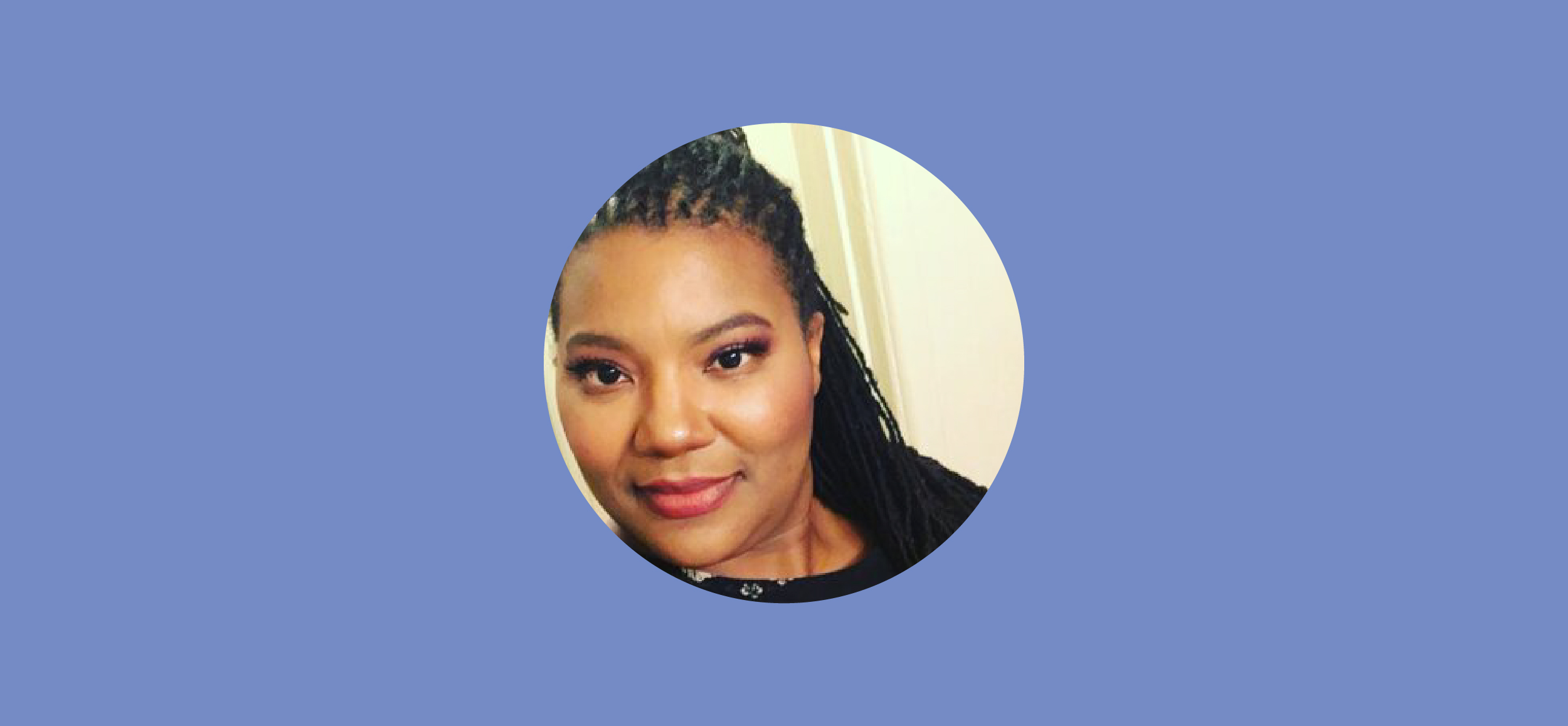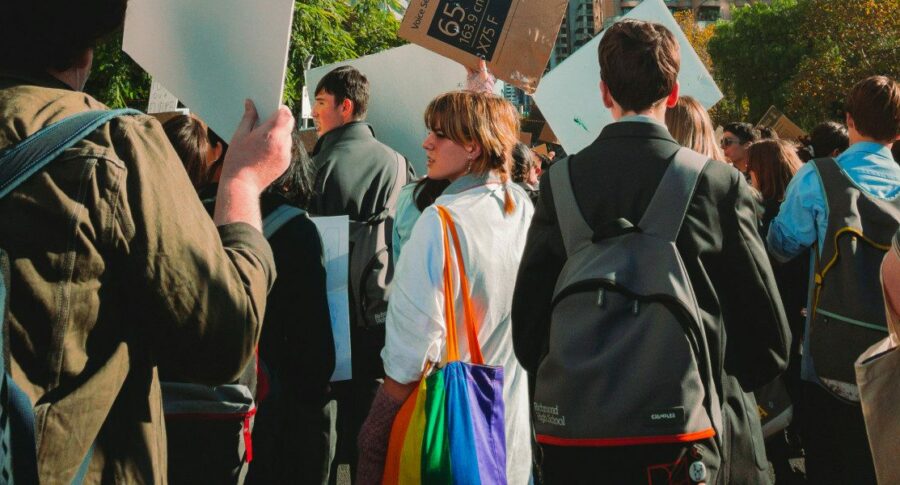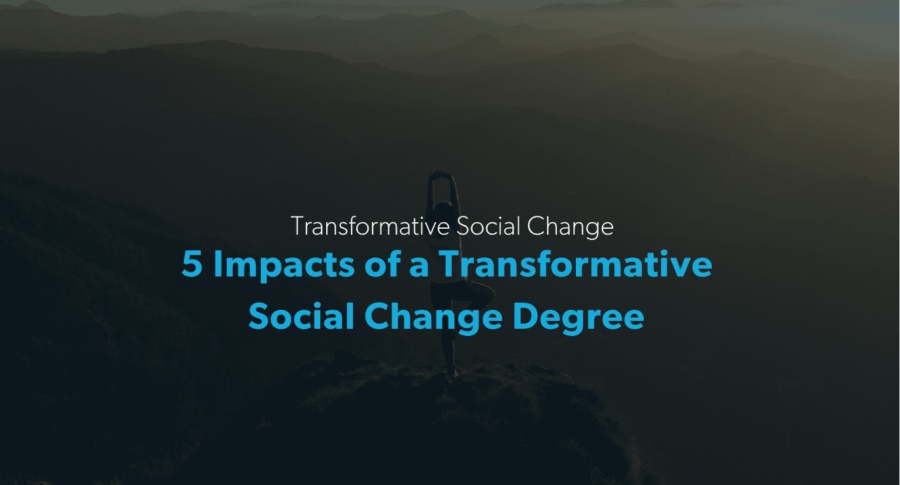Some things are too important to get wrong.
Some moments too crucial to mess up.
Some conversations are too vital to use the wrong language. We’re not just talking about the difference between your and you’re, but the very important words used to define generations and movements.
Social movements have many waves, like first-wave feminism and the divisive second and third waves. The fight for Black people’s rights is much the same. 2020 has seen the continuation of the fight for racial justice. The civil rights era brought a lot of progress, but it never truly ended racism, just changed the way it appeared in everyday life.
With the death of George Floyd and other racial trauma during COVID-19, we’ve seen a distinct rise in protests and demands not just for the end of racism, but for an antiracist society. Not a new term but brought to the front of our collective repertoire perhaps. Antiracism wasn’t the only term that came to the forefront this year. We also began to explore deeply what being an ally and an accomplice really means.
Two leaders in the Saybrook community discuss what the language and the narrative around the fight for racial justice means to them and how they see the movement pushing forward.
Theopia Jackson, Ph.D., is a licensed clinical psychologist who received her master’s degree in clinical psychology from Howard University, Washington DC, and her doctorate from the Wright Institute in Berkeley, California. She is currently the Co-Chair of the Department of Humanistic & Clinical Psychology and Chair of the Clinical Psychology degree program at Saybrook University in Pasadena, California. Dr. Jackson is the 2019 - 2021 President for The Association of Black Psychologists, Inc. (ABPsi) and past president for the Bay Area chapter.
Deja Jones is a third year Ph.D. student in the Transformative Social Change Department. Her research interests focus on creating alternative education systems that provide equity in Black and Brown communities. She teaches youth organizing in partnership with community-based organizations across New Jersey.
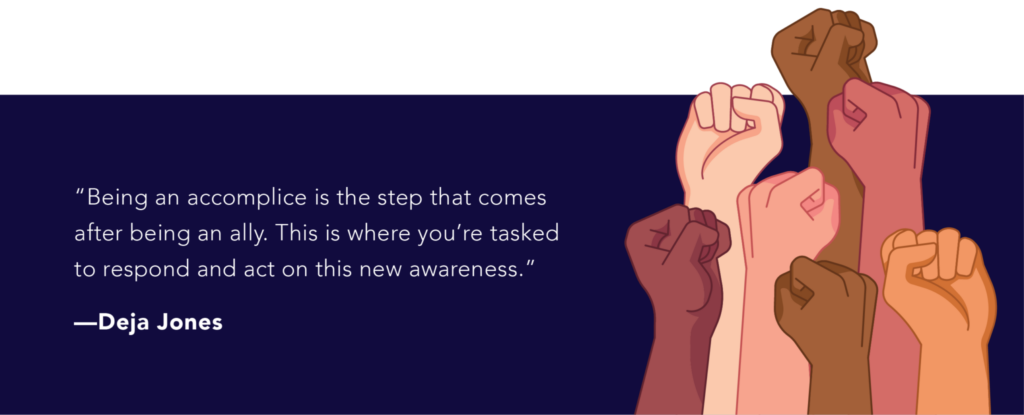
On ally vs. accomplice
Deja Jones: When we think about an ally, there’s a limitation. Being an ally is taking the first step to awareness. You’re someone who is not a part of a marginalized community so you’re coming into this awareness that there’s something wrong, but also acknowledging that there are groups of people who have had to live and navigate through these spaces. So the first step is to seek to understand this new awareness.
Being an accomplice is the step that comes after being an ally. This is where you’re tasked to respond and act on this new awareness. It’s one thing to know and understand or try to understand what’s going on in terms of racial injustice here in America, but it’s another thing to be out there on the ground or doing your part in actually changing the structures.
When you’re an accomplice to the fight for racial justice, that means you’re in the room with us, strategizing and planning. And you’re also out there in the field acting and changing the infrastructure of things.
I think both words are needed, but it’s the step before the step. We want allies. We want people who are aware. We want people who understand. People want to be a part of these movements with us, but it can’t just live in a space where you read a book about it or you watch a video about it.
Dr. Theopia Jackson: Language is important in our country. It drastically informs thought and action. But I also worry because when we start using labels so freely, we have lost the person and we’re dealing with the label.

I understand the rationale for adopting the concept of an accomplice in antiracism, yet I have some concerns. The term accomplice in historical context in our country has a negative connotation to it. It’s always aligned with people getting together to do something wrong. It’s never been used in a celebratory space.
To me, allyship is not a permission to step in front of us and to protect us and to save us. To some people, it makes them feel good when they’re able to take care of others, but in a way that’s about them feeling good. That would be the qualitative difference between ally and accomplice. Whereas someone who’s wanting to help take care of others simply for the idea of the other person being safe is an accomplice. In this situation, one does not fully understand what it means to be a cultural ally, which includes self-reflection before action.
The person who has a savior complex is preoccupied in some ways by getting seen by others. Whereas others who may step out are not there to be heard or seen. One of the images I have greatly appreciated during this time of a more heightened racial pandemic is the wall of white mothers who stood between law enforcement and protestors, the Wall of Moms. They’re trying to keep everybody safe. I didn’t hear any of them in the media saying, “Well, you know, we’re good people we want to do something.” None of them were taking credit.
Words matter. So another side of the coin is the term minority. I have a problem embracing it, saying to my child, “You are a minority.” I’m not a mathematician, but I know enough to know if I’m using the word minority, from a psychological perspective, this means somebody out there is more than me.
This becomes even more complex if you’re looking at statistics from around the world, a reverse relationship in terms of people of color or ethnic groups in relation to white Americans, which is the way we always couch these conversations. White versus Black, white versus something. In this context, with the projected ethnic populations, it may inadvertently perpetuate some misperceived threat to those who identify as white Americans.
As we get better, we have to do better. We must continue to challenge ourselves—acknowledge that these terms may not be as helpful anymore because they have a psychological messaging to them.
On action
Jones: There’s a quote by Audre Lorde: “We are not responsible for our oppression, but we must be responsible for our own liberation.” She also talks about how it’s not the responsibility of the oppressed to educate the oppressor. But I think what’s interesting is that when we take on that approach, we’re missing out on the importance of relationship building too. When we disassociate from what’s going on, that’s where white savior complex tends to sprout up.
We’re asking people who aren’t marginalized to give up some of their privilege to help equalize or promote equity and liberation for people who are marginalized. When we’re constantly saying that to people who aren’t oppressed, it creates this idea that “I have to do my part. I have to come in here and do this, do that.” The term ally in some way can play into white savior complex, which is why I said the term can be very limiting.
It requires additional steps beyond learning and understanding. But you’re not working outside the bubble of racial justice—you’re inserting yourself into it, to be a part of change.
On self-actualization
Dr. Jackson: The idea of self-actualization is critical in the fight for racial justice. It means I’m going through my own transformative process, gaining greater insight into who I am, being able to decide who I want to be and how I’m going to be in terms of my own meaning-making and self-determination. If we accept the reality that racism impacts everyone, it becomes part of everyone’s personal self-actualization. It just manifests itself differently. This can lead to deeper levels of change/transformation and promote collective-actualization.
We have evidence to demonstrate the psychological, spiritual, physical, and economical impact that a group or a person in a group can experience just by fact of being in that group—in this context where we’ve targeted them. What we haven’t paid enough attention to is what is the impact on the psyche and the spirit of the person who’s perpetuating racism. Or the person who is colorblind to it, or the person who thinks the work is done because of the civil rights movement. To paraphrase a quote (I have lost the awareness of the author): “Evil flourishes when good people stay silent or do nothing.”
All of us have been impacted by what I call white supremacy ideology. Hear that clearly. It has affected all of us. We have to critically interrogate that and unpack it. It doesn’t mean that we turn everything on its head. It doesn’t mean that everything flip-flops or we’re annihilating our “American way.” For example, we have an awareness of how being subjected to oppression or racism can impact the person or group. However, we are less aware of or even curious about how it impacts the person or group who embraces racist ideology. What is happening to their psyche, spirits, and their future generations? What it means, if we unpack it clearly, is that we may be in a better position to actually live the American dream and live it in a more humane collective way.
The real question should always be, how do I locate myself in this? How is it affecting me? And as I better understand that, then how can I be more clear about what I’m going to do to help my own growth and the growth of humankind?
If we’re going to enter into this for the goodness of all humanity, then all of humanity must say that somehow racism has impacted me, and I’ve got to figure out how. Let go of the temptation to defend oneself of not being a racist and embrace the realities that we have all been exposed to racist ideology and culture (beliefs, values, practices, etc.). This is what feeds implicit bias. Therefore, the actions of allyship, the actions of being protective, are evidence of someone’s trans-personal self-actualization transformation.
We have to be brave enough, courageous enough, innovative enough, to do something different that can allow us to have greater societal and deep level change. I believe we have to go beyond ally or accomplice to self-actualization transformation that can then lead to collective-actualization and societal transformation so that we can have a more humane just world.
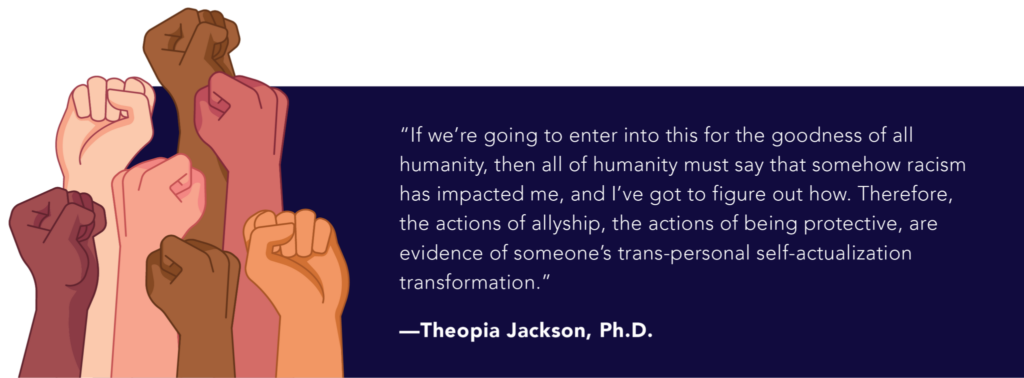
On generations
Jones: One thing I’ve reflected on as well, especially when it comes to racial injustice in America, is that with every generation there is an uprising. There was an uprising for my mom’s generation, my grandparents, great-grandparents, and at the surface it’s always about racial injustice. I think now at least for my generation—millennials—we’re now past a place where we want to continue having conversations about racial injustice. We want more.
We also don’t want to settle for reform because that’s clearly not the answer. Now we’re moving from reform to a place of dismantling, and we’re asking—how do we dismantle systems? How do we disrupt systems? How do we interrupt processes? Because on the surface, we are destroying something, but it’s for the betterment for everyone.
Because we’ve been so accustomed to living the way that we are, it’s almost difficult to reimagine something different.
Even from my lens as a Black American, there is a generational divide when it comes to the fight for racial justice. My thoughts and beliefs might be seen as radical to someone like my grandparents or my great-grandparents. So in this instance, even the word accomplice refers to all of us Black people as we try to move all generations from a place of complacency to a place of action.
But what’s happening in terms of the racial uprising can be very traumatic or trigger inducing for older generations who’ve had to live through their own struggle with racial injustice in America. But I think the uprisings happen every generation because with each we reach a certain pinnacle and we think that that’s it. “The work is done. We can sit down now.”
But then something else comes about and now we’re activated to act again. I’m having conversations with non-Black people about racial injustice in America and what that looks like in all different fields, but I’m also having these conversations with family and friends who are Black. There’s a learning gap.
At least for me as a Black person, I think my Blackness is what automatically makes me marginalized, but I also don’t have all the answers. I don’t have all the tools or all the resources to give, so it’s a learning experience for me too.
I think it’s about us equally doing our part where it’s, “OK, I can give you resources. I can point you in direction of things that you might find interesting, but I also acknowledge that I don’t have the capacity to be a full-time teacher for you in this process.”
While it’s not a Black person’s responsibility to educate, I do think that we can do our part. Allyship and accomplice is about relationship, and you can’t have a relationship with just one person. I think that we have a shared responsibility in this. I know we’re tired, but we also have a shared responsibility to make sure that we are working together to bring about a change.
On finding yourself in the conversation
Dr. Jackson: I’m more interested in all of humanity, all of America asking itself, how has racism impacted me. More specifically, how has systemic racism impacted me? Because systemic racism, just like culture, is like amniotic fluid.
We’re not raising white children saying, “OK, let me let you in on a secret. You’re winning things because you’re on the good side of the systemic oppression and racism that would perpetuate.” That’s not happening.
But they are being raised in a racist culture. They are being socialized into that. If you hear the name, Susan versus Theopia, it brings these facts to light. People will always say, “I treat everyone equally.” But if you can’t even say my name or take liberties to shorten it to Theo or not recognize that you may have made some assumptions about who I am before you meet me, then you are acting from bias; you already have some thoughts about me.
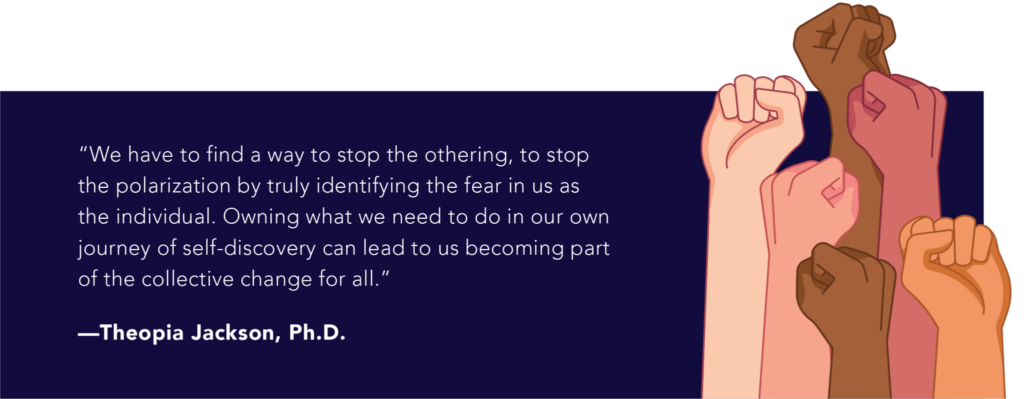
In my own experience, I’ve had many interactions where someone will change my name to a nickname without asking—particularly white people. Other examples are the prevalence of white people touching our Black children’s hair without asking or the questioning of “what are you?”
These are examples of unexamined privilege. Privilege is not defined by how much money you have. It is defined by what you have to pay attention to and what you don’t. What doors get opened for you because of a certain membership in an organization, even though you may still be poor in America.
You see this when we look at health care. If we’re looking at the mortality rates for pregnant women in terms of being able to deliver healthy live babies, across the board, white women, even uneducated and living in poverty, have a higher live birth outcome than educated Black women. They can even see the same doctor yet the disproportionate outcomes occur and research has demonstrated that it is not about Black women’s problems but more about the quality of interactions within the health care industry. That’s privilege.
Jones: Fighting for racial injustice requires decentering, and decentering is an ongoing process. It’s really difficult to decenter because we’re human and we feel things and we want to share our feelings and our thoughts and our opinions. At the same time, it’s important to read the room and know where you’re at in this process.
After the George Floyd video, I found myself in many group conversations as the only Black person. And for many of them, it was the first time that people were exploring the history of Black oppression—which was an emotional enlightenment for many. It became about what they were experiencing versus what the experience of the people who are actually suffering are experiencing.
Decentering requires you to acknowledge how everything is making you feel, and what you’re learning and simultaneously understanding the privilege of not actually having to experience it every day.
Now we’re challenging white people to step up and be a part of dismantling this racist system, but we’re not telling you to step up to the microphone or to be the mouthpiece for all things oppressed. Decentering is being able to sit down and listen. It’s asking people how they’re feeling and not asking to respond, but listening.
When white people step up to the speaker box to be centered in this movement, it really hurts the movement. It’s about walking beside marginalized people and not trying to lead us to where you think we should be.
On learning
Dr. Jackson: As a humanistic developmental psychologist, I’m always of the mindset that the more we know, the more we don’t know and the more potential we have to know. There is no end zone.
When I think about the time of enslavement, we talk a lot about the hanging of the body, but I also think about what is going on in the psyche of that child, that white child who’s watching the Black body being hanged. What’s going on as they grow up, as they become parents? How is that showing up today?
We’ve never fully looked at that in the field of psychology. Perhaps if we had, America would not be sitting in this moment, because I would submit that this is happening under our watch as psychologists. Our science is not deep enough or good enough in this moment to meet such complexities. There is more for us to learn.
We have to critically understand how white supremacy took hold in someone. Some void is being filled with this ideology—some sense of self being satisfied. In some ways we, as a society—more than just parents—we as a society missed something. How did we not see what was happening to the psyche of that developing child that led to these adults? That led to a sixteen-year-old showing up with a gun in the middle of a protest.
That’s on us. That’s on our science. That’s on our health care system. That’s on our mental health system. That’s on our educational system. That’s on our family. It’s a collective problem.
We have to find a way to stop the othering, to stop the polarization by truly identifying the fear in us as the individual. Owning what we need to do in our own journey of self-discovery can lead to us becoming part of the collective change for all. In closing and reflecting on this moment in American history, what woke us up, and how do we stay woke long enough to effect genuine transformational change?

Learn more about Saybrook University
If you are interested in learning more about the community and academic programs at Saybrook University, fill out the form below to request more information. You can also apply today through our application portal.
Find Out More
Recent Posts
